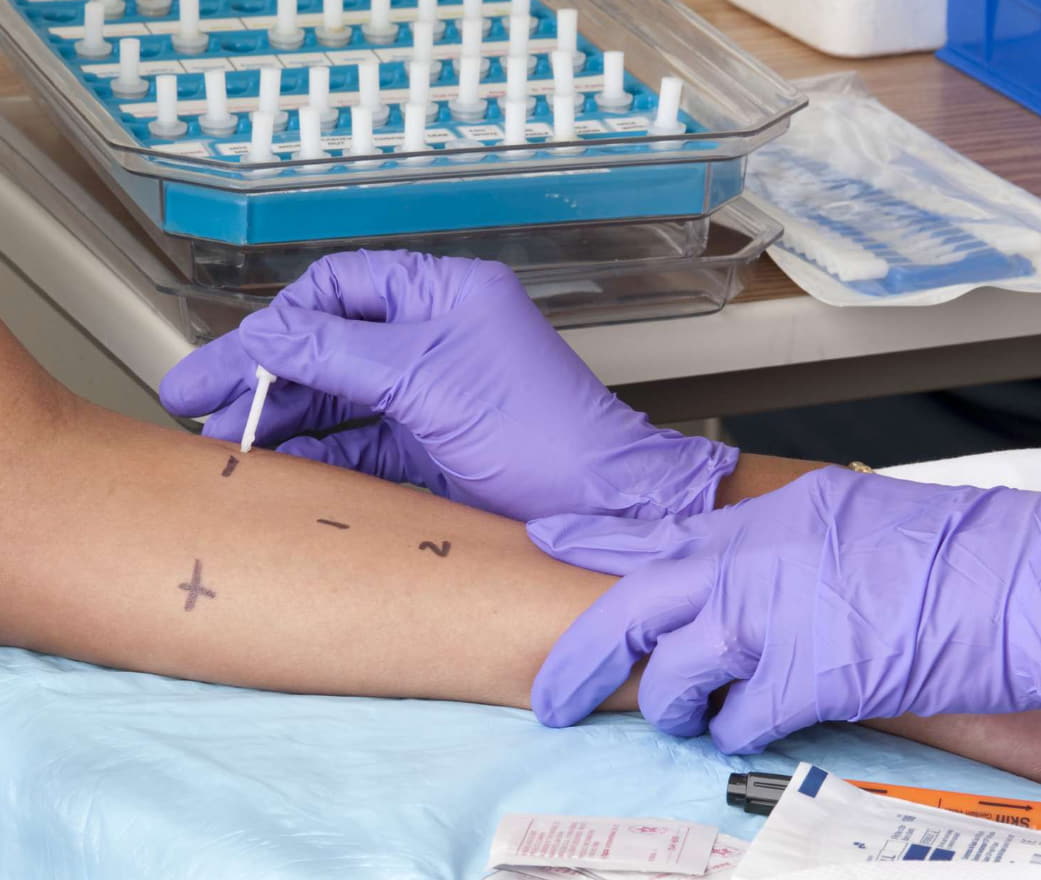Do you believe you have a penicillin allergy? If so, you might be surprised to learn that recent studies suggest many individuals who think they are allergic to penicillin may not actually be allergic. This phenomenon, known as penicillin allergy de labelling, is gaining attention in the medical community as researchers uncover the importance of accurate allergy diagnosis. In this blog, we’ll explore what penicillin allergy de-labelling entails and why it’s essential for individuals to undergo proper allergy testing.
What is Penicillin Allergy De-Labelling?
It refers to the process of re-evaluating and potentially removing the label of penicillin allergy from a patient’s medical history. Many individuals who believe they have a penicillin allergy may have never undergone formal allergy testing to confirm the diagnosis. As a result, they may be unnecessarily avoiding penicillin and its related antibiotics, which can lead to the use of less effective or more expensive medications.
The Importance of Allergy Testing in Brisbane
To accurately diagnose a penicillin allergy and determine if penicillin allergy de-labelling is appropriate, individuals should undergo allergy testing conducted by a qualified allergist. Allergy testing, such as allergy testing in Brisbane, typically involves skin prick tests or blood tests to assess the body’s immune response to penicillin and other antibiotics. These tests can help identify whether a true allergy exists or if the symptoms experienced were due to other factors.
Benefits of Penicillin Allergy De-labelling
There are several benefits to undergoing penicillin allergy de-labelling for individuals who have been incorrectly labelled as penicillin allergic. First and foremost, de-labelling allows patients to safely use penicillin and its related antibiotics if needed, reducing the risk of unnecessary antibiotic use, treatment failure, and the development of antibiotic resistance.
The Role of Healthcare Providers
Healthcare providers play a crucial role in the process of penicillin de-labelling. By educating patients about the importance of accurate allergy diagnosis and facilitating allergy testing when appropriate, providers can help identify individuals who may benefit from de-labelling. Additionally, providers should be aware of alternative antibiotic options for patients with true penicillin allergies to ensure optimal treatment outcomes.
Conclusion
In conclusion, penicillin allergy de labelling is an important consideration for individuals who believe they have a penicillin allergy. By undergoing proper allergy testing, such as allergy testing, patients can confirm or rule out a penicillin allergy and potentially have the allergy label removed from their medical history. This can lead to improved treatment outcomes, reduced healthcare costs, and a more judicious use of antibiotics. If you suspect you have a penicillin allergy, consult with a qualified allergist to undergo allergy testing and determine the most appropriate course of action.


